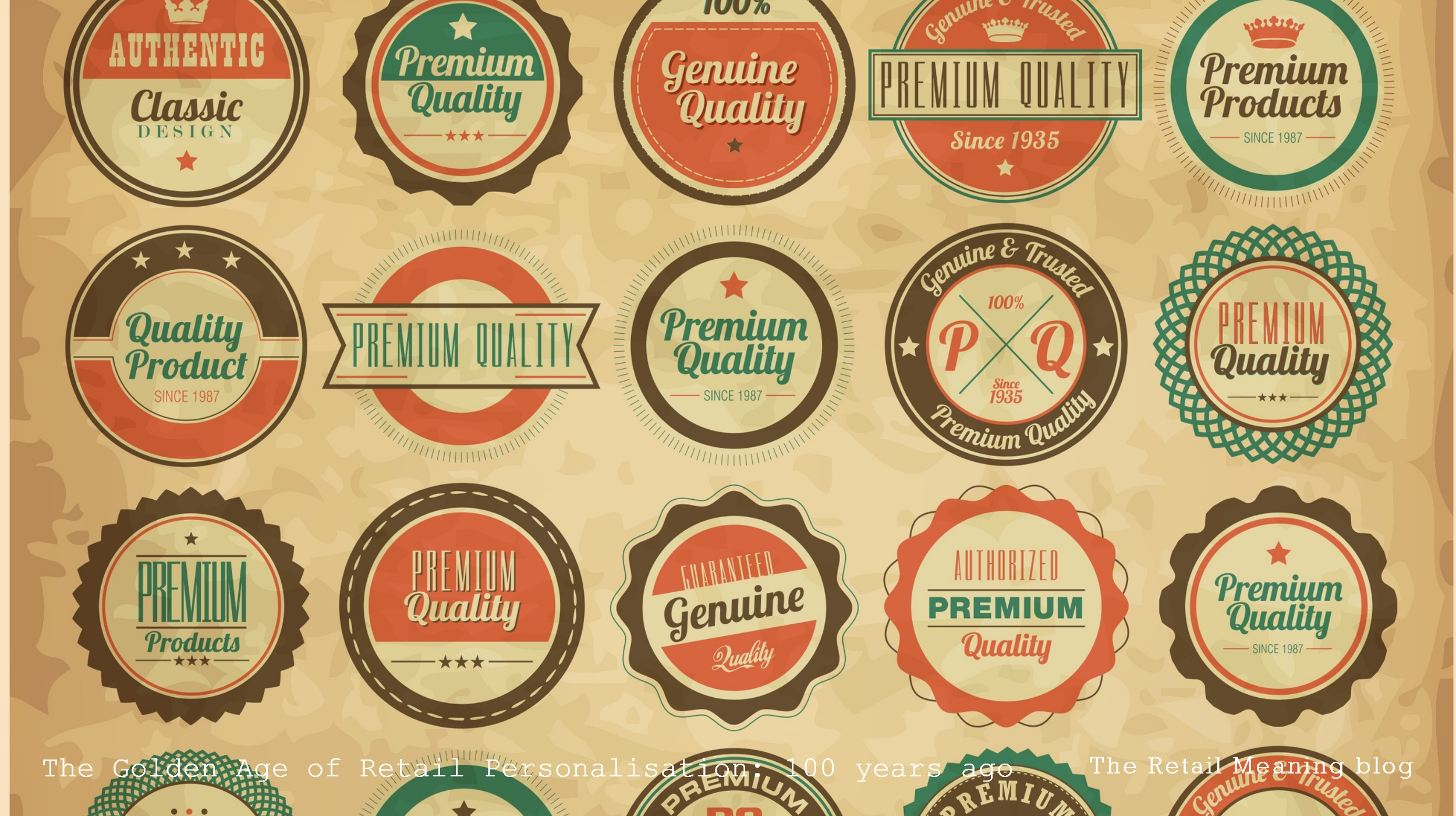Lest we get ahead of ourselves and think that we have invented the retail wheel through our technological mastery its worth reflecting that certainly up until today the golden era of retail personalisation was in a time before even H.G. Wells envisaged the role that computers would play in our lives.
And should we consider that getting personal with customers is something extraordinary isn’t it currently really an online initiative striving to replace what has largely been lost in the physical world of retail.
Don’t get me wrong. Amazon is a phenomenom…it is a phenominal retailer. And personalisation is at the heart of its success and appeal. In a recent online audit I carried out across the industry, it really is miles ahead of its online competitors in terms of personalisation…its content management, recommendations and product suggestions. However probably the cleverest thing is has done is not through its algorithms but through its realisation and response to the fact that customers are all individuals, and want to be treated as such.
So let me take you back through the sepia stained decades to the era of the local independent retailer. His home was literally where he worked, and his customers were the friends and neighbours who lived around him and bought from him.
For him, no demographic profiling, no segmentation or pigeon holing, but a sea of familiar faces with personalities, preferences, likes and dislikes and weaknesses ready for gentle exploitation by the stealthy shopkeeper.
For every customer there was a personal relationship, a subtle ‘shift in tone’ to accommodate the individual demeanour of the person on the other side of the counter. The shopkeeper knew the family situations, the needs of the family, the ages and events of every family member. No customer ever filled out a questionnaire, they just opened-up their lives to a friendly face.
There were no loyalty cards…but there were genuine rewards in the form of green stamp books and Christmas clubs. And most of all there was a spontaneous manipulation of pricing in favour of the regular customer, the best cuts, newest products, the shapes, colours and patterns that suited familiar complexions, all put to one side as a personal service for special patronage.
And in the conversations there were always suggestions and recommendations for new product adventures on every visit. These were appreciated and warmly welcomed by the customer because they were relevant, appropriate and useful.
How did this magic relationship happen? Because the retailer knew the customer.
Because being “personal” was natural and organic unlike the often cold and artificial extrapolation of the word into “personalisation.”
Where does this leaves us? In a world where ironically the new kids on the retail block, the digital and omnichannel block, such as Amazon, Loaf, MissGuided and others are the ones who see the value in the individual retail relationship. A world where sadly many larger multiples have forsaken friendship in the chase for hyper efficiency and commodity commercialism.
Of course this generalises. There are physical businesses both old and new, entrepreneurial independents who successfully encourage face-to-face relationships, to the more enlightened chains where every store has its own individualism and patronage which are creating lasting loyalty.
The lesson for all retailers, across all channels, is to re-discover the personal touch.
The way forward is to re-discover your staff and store teams as well as your algorithms.
Personalisation belongs in the physical retail world…not just the digital.
Remember ‘personal’ is short for personalisation. Ultimately only personalities in the form of people can truly create that living bond and turn physical retail into both personal and corporate success stories once again.
Not sure about how to communicate with your customer?
Struggling to generate a personal touch with customers in your stores?
We can help.
